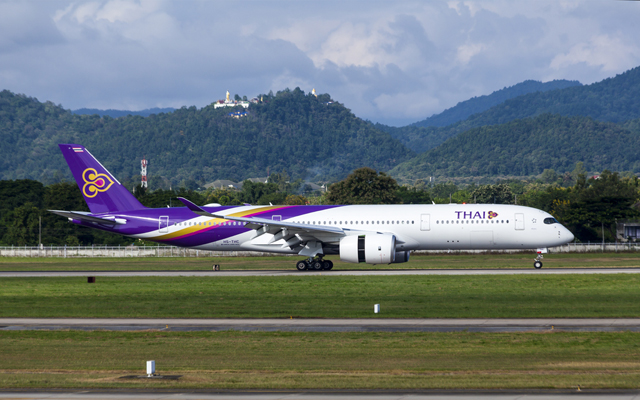Thai Airways International (THAI) intends to increase capacity to Europe where it already boasts 12 direct connections.
The airline is seeing “very strong” Europe performance and load factors, according to THAI’s vice president, sales department, Bryan Banston, who added that the carrier finally sprung back from the black in 2016, prompting further confidence in its business outlook this year.

“One of our key strategies is to grow European routes to daily in the short term. These include Brussels, Milan, Rome and Moscow,” he told TTG Asia.
Besides doubling its Frankfurt and London services to double daily in late 2015, the airline’s resumption of four-times weekly services to Moscow in December 2016 has already witnessed “booming” traffic from Russia, according to Banston.
Meanwhile, the recent delivery of two Airbus A350-900XWBs has also enabled THAI to pursue European capacity growth by deploying the new widebody aircraft on the Milan and Rome routes.
Said Banston: “The A350 has proven itself well in Italy, and we expect it to do well in Europe.”
Furthermore, THAI is also leveraging its relationships with Star Alliance member airlines in Europe, particularly in markets like the Netherlands and Spain where it doesn’t have direct connections yet, said Banston.
The airline has also revealed clear ambitions to position itself as a network carrier in South-east Asia through its Bangkok hub. “We see good growth in network selling,” said Banston. “We also see opportunities to focus on our network to move passengers beyond Bangkok to other parts of South-east Asia, Asia and Australia.”
Regional subsidiary Thai Smile will hence play an integral role to generate new feed for THAI’s longhaul network, as it has fallen behind competitors in terms of regional network development in recent years. For instance, it has identified Europe to be a good source for Thai Smile’s Kota Kinabalu-Bangkok service starting the end of this month.
Banston also sees opportunities in driving European passenger demand into secondary destinations in Thailand like Phuket, where it recently added a Frankfurt-Phuket link in November 2016.
When asked if the aggressive competition of the Gulf airlines on the Europe-Asia market poses any threat, Banston said: “THAI’s edge lies in our non-stop operations, which comprise one long and short sector. Premium and corporate passengers prefer such arrangements than to have the leg broken up into two.”




















